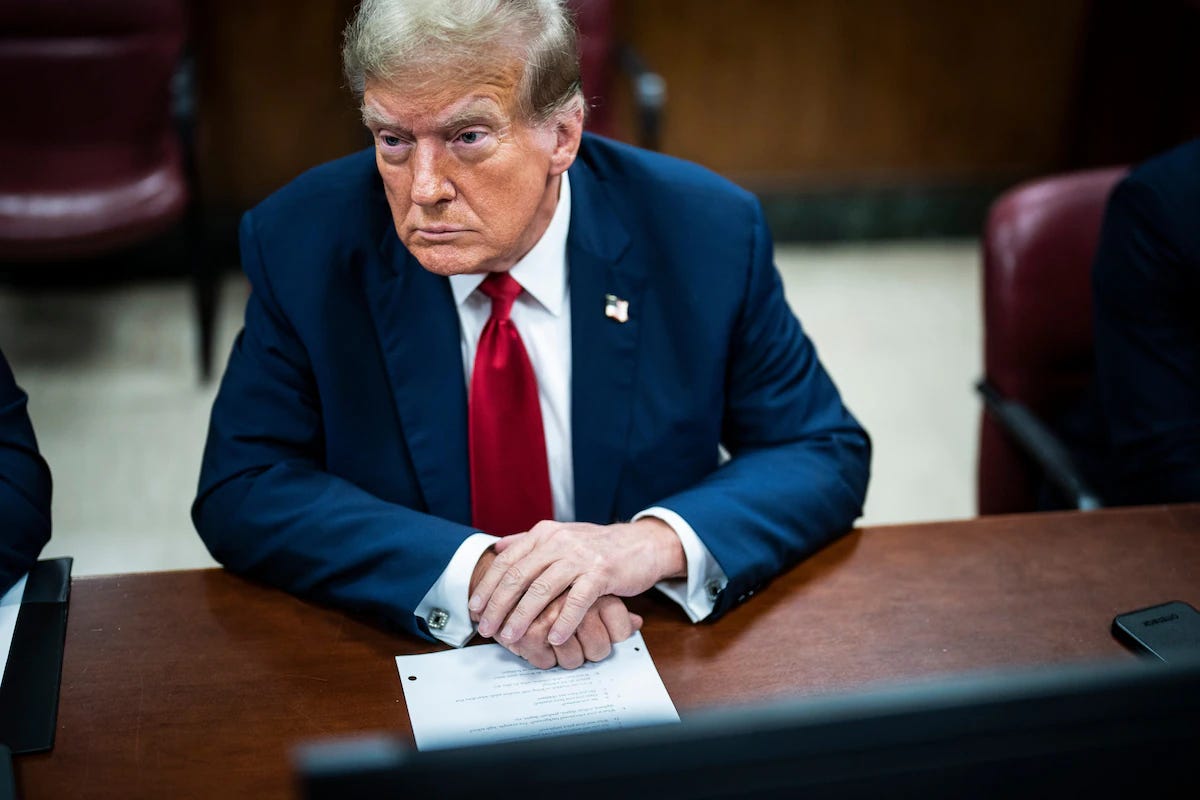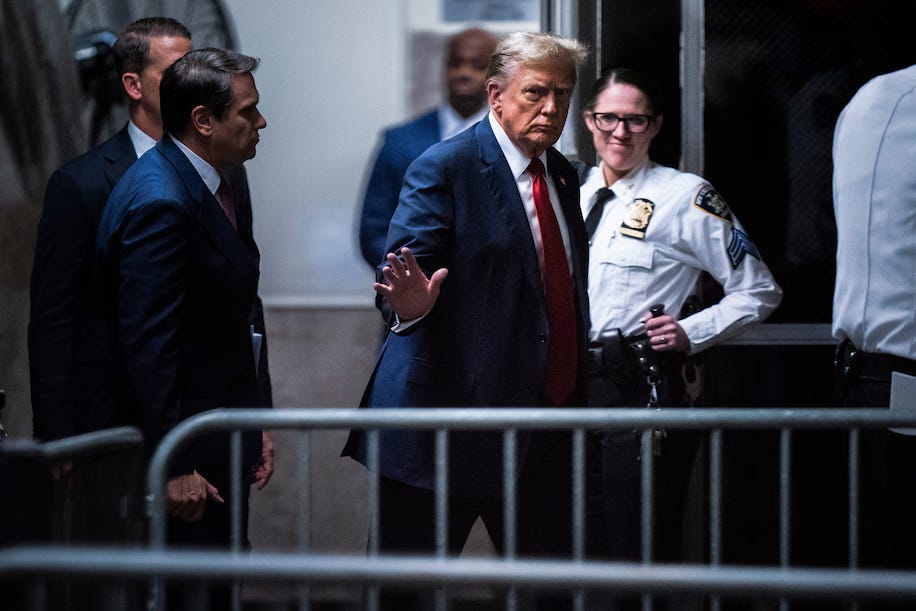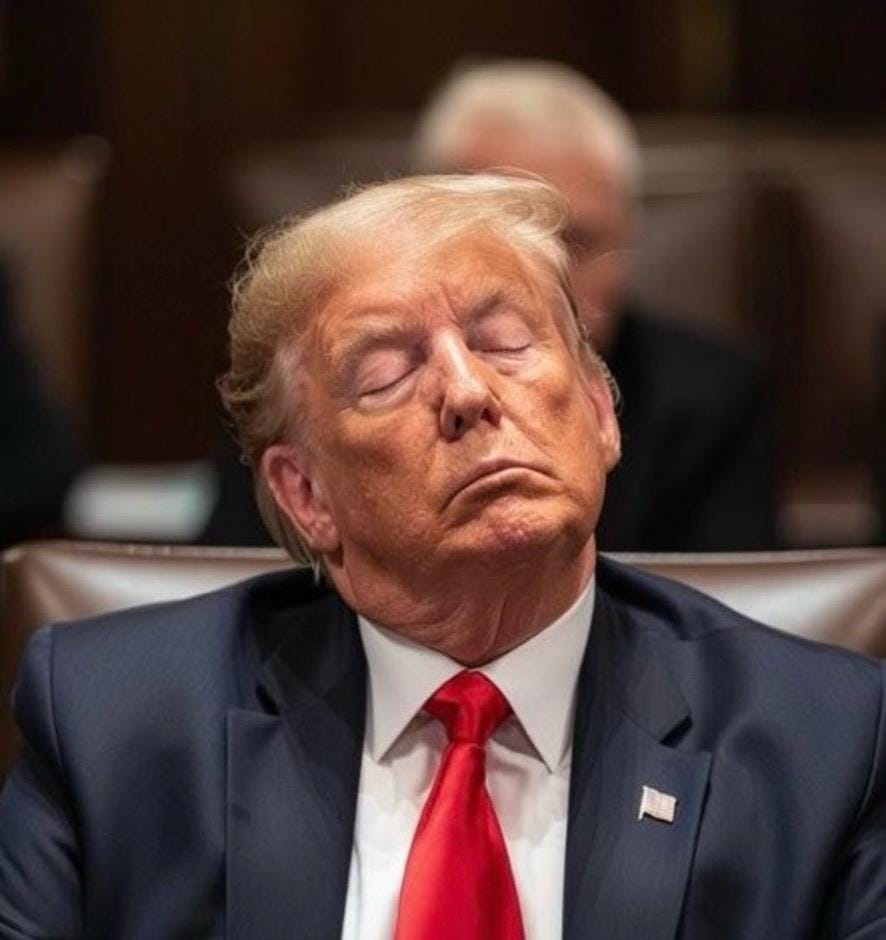Jury Trial of Donald Trump: Day One Overview
The New York Hush-Money Case, popularly called "Stormy Daniels" case, kicked off in a Manhattan Court in New York.

The Unprecedented Trial of Donald Trump: Day One Overview
The historic first day, Monday, 15th Match, 2024, of Donald Trump’s criminal trial, a first for any former U.S. President, unfolded in Manhattan at the New York Supreme Court amid intense global attention and controversy. Here is a comprehensive overview of the key events and takeaways from the courtroom.
Salacious Beginnings and Judicial Restraints
The proceedings began with a contentious debate over the admissibility of details concerning Trump's various other alleged sexual indiscretions. Prosecutors sought to introduce evidence of Trump’s past behaviors with women to demonstrate his purported motives for the hush money payments allegedly made to suppress information detrimental to his 2016 presidential campaign. However, New York Supreme Court Justice Juan Merchan ruled against the inclusion of most of these accusations, describing them as “very, very prejudicial,” and potentially biasing the jury with unsubstantiated claims.
Logistical Challenges in Jury Selection
A significant portion of the first day was dedicated to jury selection, a process that proved to be problematic from the outset. Out of the initial pool of 96 prospective jurors, more than half were dismissed after indicating their inability to remain impartial, underscoring the polarized views surrounding Trump and hinting at the potential length and complexity of the trial process. Trump has chosen to exercise his "Antommarchi rights," established by the New York Court of Appeals in the 1992 case of People v. Antommarchi. These rights allow a defendant to be present, and in close proximity to observe the facial expressions of prospective jurors during sidebar discussions about biases or other sensitive issues. This participation is often waived by defendants, who allow their lawyers to manage this process, but Trump attended personally, further complicating matters as wherever he goes, the Secret Service must also be present. This requirement introduced logistical difficulties that contributed to the challenges faced on the first day of the trial.
Trump’s Courtroom Decorum and Demeanor
Despite Trump's previous courtroom behaviors and his public denunciation of the trial as an "assault on America," his conduct inside the courtroom was mostly subdued. Justice Merchan issued a stern reminder that any disruption could lead to direct consequences, including possible incarceration. Trump's presence is expected to be a constant throughout the trial, as he intends to be actively involved in the sidebar questioning of jurors, a right protected under New York state court law. Additionally, the Judge has reserved Wednesdays for matters unrelated to the Trump trial, a scheduling preference the Trump team has requested be shifted to Monday or Friday to afford Trump three continuous days of campaigning each week. However, the Judge has not yet made a decision regarding this request.
Provisions of Law on Trump's Personal Attendance
The Court has, as per the provisions of the law, mandated Donald Trump’s personal presence throughout the trial proceedings, following the selection of jurors. This stipulation highlights the trial's seriousness and Trump’s role as a defendant/ accused. Justice Merchan has made it clear that non-compliance with this requirement could lead to severe consequences. Should Trump fail to appear at any point, the judge is prepared to issue arrest warrants to ensure his confinement during the trial. Adding to the stringency of the Judge's orders, Trump's request to be excused from the trial to attend his son Barron's High School graduation was denied, signaling the court's intent to not let personal matters interfere with the legal process. The graduation was scheduled for 17th May, underscoring the trial's overlap with significant personal milestones in Trump’s life.
Strategic Legal Battles
The day was not only marked by discussions over jury impartiality but also by strategic legal skirmishes. Trump’s lawyers argued vehemently against the inclusion of various allegations, stressing that these would unfairly prejudice the jury. On the other hand, the prosecution argued that these details were crucial for establishing Trump's motive and state of mind during the 2016 election, particularly his concern about alienating female voters.
Implications and Expectations
The trial is set against the backdrop of Trump's significant political influence and ongoing aspirations, which he has adeptly used to rally his base. The outcomes of this trial could have profound implications not only for Trump personally but also for the political landscape in the U.S. since a “guilty” verdict could potentially lead to a prison term.
As the trial progresses, it will undoubtedly continue to draw significant media attention and public scrutiny. The challenge for the court will be to manage this high-profile case with the fairness and decorum that justice demands, ensuring that the legal proceedings are not overshadowed by the political spectacle surrounding them. Additionally, maintaining due process of law, a cornerstone of the US Constitution and its democratic values, will be crucial to uphold the integrity of the criminal justice system.
Summing Up
The first day of Donald Trump's trial concluded with no jurors selected and the anticipation of more intense legal debates and public interest in the days to come. As this unprecedented trial unfolds, it remains to be seen how justice will navigate through the complexities of law, politics, and public opinion. The world watches as history is written in the courtroom.
We shall continue to update our readers with significant events and milestones of this landmark trial, as they unroll. Stay tuned.






